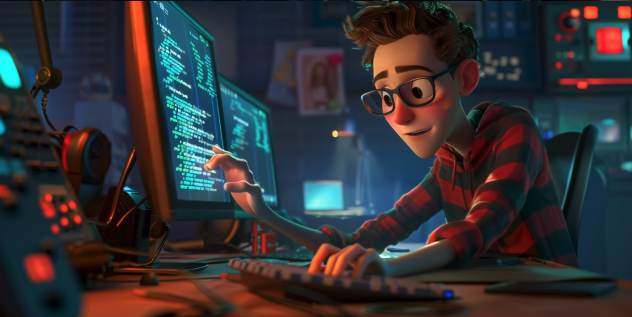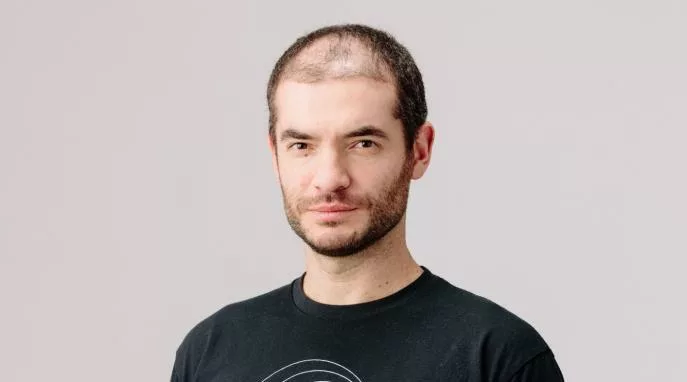Ilya Sutskever is the Co-Founder and Chief Scientist of OpenAI, and one of the visionaries behind ChatGPT.
He is also one of the leading minds in the artificial intelligence community. His contributions to the development of deep learning and AI are unparalleled. Throughout his career, Sutskever has shared many insights on how to navigate the complex, ever-evolving landscape of AI.
His journey into AI is not just a story of academic pursuit; it’s a tale of curiosity, vision, and a relentless drive to understand consciousness and intelligence. Using his own words, let’s explore the seven pivotal moments that shaped his path towards AI and his views on its future impact.
Before we start: Who is Ilya Sutskever?
Ilya Sutskever is a prominent figure in the field of artificial intelligence and machine learning. Born in Nizhny Novgorod, Russia, he later moved to Jerusalem and then to the University of Toronto, where he earned a bachelor’s degree in Mathematics. Sutskever is known for his significant contributions to the development of AI, having co-founded OpenAI and served as its Chief Scientist. He has also been involved in groundbreaking research, including co-inventing AlexNet and Sequence to Sequence Learning. Sutskever’s work has earned him numerous accolades, and he continues to lead research efforts at the forefront of AI development, particularly in the creation of artificial general intelligence that benefits humanity
1. A Childhood Fascination with Consciousness
“When I was a little child at around the age of 5 or 6, I was very struck by my own conscious experience. By the fact that I am me and I am experiencing things. That when I look at things, I see them…
Ilya Sutskever, Co-founder and Chief Scientist of OpenAI
But this feeling of that I am me, that you are you, I found it very strange and very disturbing almost. And so when I learned about artificial intelligence, I thought, wow, if we could build a computer that is intelligent, maybe we will learn something about ourselves, about our own consciousness.”
As a child, Ilya was captivated by the essence of conscious experience. “I was very struck by my own conscious experience… I found it very strange and very disturbing almost,” he recalls. This early fascination laid the groundwork for his lifelong quest to understand intelligence, not just as a scientific phenomenon, but as a window into the self.
Insight: The Quest for Understanding
Ilya’s childhood curiosity underscores the importance of embracing wonder and inquiry. It’s a reminder that the seeds of great discoveries often lie in the questions we ask, long before we have the tools or knowledge to answer them.
2. The Mystery of Intelligence
“I was simply curious about how intelligence works. And when I was a teenager, an early teenager in the late 90s, the sense that I got is that science simply did not know how intelligence worked.”
Ilya Sutskever, Co-founder and Chief Scientist of OpenAI
During his teenage years, Ilya realized that the mechanisms of intelligence were largely a mystery to science. This realization wasn’t a deterrent; instead, it fueled his curiosity. “I was simply curious about how intelligence works,” he states, highlighting his intrinsic motivation to unlock the secrets of the mind.
Insight: The Quest for Understanding
Ilya’s journey emphasizes the value of curiosity as a driving force in learning and innovation. When faced with the unknown, curiosity pushes us to explore, to learn, and to discover.
Looking for more inspiration 📖
- Sam Altman’s secrets on how to generate ideas for any business
- 6 Greg Brockman Secrets on How to Learn Anything – blog
- The secrets behind the success of Mira Murati – finally revealed
- Ideas to Make Money with ChatGPT (with prompts)
- Ilya Sutskever and his AI passion: 7 Deep Dives into his mind
- The “secret” Sam Altman blog post that will change your life
- 4 Life-Changing Lessons we can learn from John McCarthy – one of AI’s Founding Fathers
3. The Potential Impact of AI
“It it was clear to me back then [as a teenager] that artificial intelligence, if it worked, it would be incredibly impactful.“
Ilya Sutskever, Co-founder and Chief Scientist of OpenAI
Understanding the potential transformative impact of AI was a clear motivator for Ilya. He recognized early on that “artificial intelligence, if it worked, it would be incredibly impactful.” This vision of AI’s future possibilities guided his commitment to the field.
Insight: Visionary Impact
The anticipation of AI’s impact highlights the importance of forward-thinking in shaping the direction of our efforts. Visionaries like Ilya don’t just work towards what is possible today but what can revolutionize tomorrow.
4. The Temporariness of AI’s Limitations

“When you speak to an AI chatbot, you very quickly see that it’s not all there, that it’s, you know, it understands mostly, sort of, but you can clearly see that there are so many things it cannot do, and that there are some strange gaps. But this situation, I claim, is temporary.“
Ilya Sutskever, Co-founder and Chief Scientist of OpenAI
Conversing with an AI chatbot reveals its limitations, but Ilya sees these shortcomings as temporary. “This situation, I claim, is temporary,” he asserts, pointing towards the inevitable evolution of AI technologies.
Insight: Embracing Evolution
Acknowledging the current limits of AI, yet seeing them as temporary, illustrates a key mindset for growth: the belief in progress and the potential for breakthroughs.
Looking to find your BIG money idea like Ilya? Click here to view the largest collection of “how to make money with ChatGPT” articles on the internet.
There are ideas for every niche, and it’s free: click here.
5. The Dual-Edged Sword of AGI
“AGI will have dramatic and incredible impact on every single area of human activity. This technology is also going to be different from technologies that we are used to because it will have the ability to improve itself. It is possible to build an AGI that will work on the next generation of AGI.”
Ilya Sutskever, Co-founder and Chief Scientist of OpenAI
Ilya discusses the dual nature of AGI (Artificial General Intelligence) impacts, acknowledging that “for every positive application of AGI, there will be a negative application as well.” He understands AGI’s potential to self-improve, highlighting its unique position among technologies.
Insight: Ethical Considerations
The acknowledgment of AGI’s dual nature underscores the importance of ethical considerations and safeguards in the development of transformative technologies.
Resources you may like 📖
- ChatGPT Meets the Pareto Principle: Unleash Your Productivity Powerhouse
- How to use ChatGPT as a Teacher in the Early Years Classroom
- How ChatGPT can help you Memorize Anything quickly
- How to use ChatGPT to Make a Study Schedule for School Exams
- How to use ChatGPT to Summarize Books
- Utilizing ChatGPT to Apply the Occam’s Razor Principle in your life
- How to use ChatGPT to learn English or any language
- 7 Genius Hacks that every ChatGPT user should know
The secrets behind the success of Mira Murati – blog – finally revealed
Mira Murati, the 34-year-old CTO of OpenAI, is relatively secretive.
So, it was a somewhat surprise when she opened up about her life during a podcast with Microsoft’s Chief Technology Officer Kevin Scott recently.
In this revealing conversation, Mira dived into the defining moments and driving forces behind her meteoric rise, from her time at Tesla to becoming the CTO of the company that’s making waves in the tech world.
We’ve collected the best takeaways from her interview here for your inspiration.
6. Addressing AGI’s Challenges
“One of my motivations in creating OpenAI was, in addition to developing this technology, was also to address the questions that are posed by AGI, the difficult questions, the concerns that we raised. In addition to working with governments and helping them understand what is coming and prepare for it, we are also doing a lot of research on addressing the technological side of things so that the AI will never want to go rogue.”
Ilya Sutskever, Co-founder and Chief Scientist of OpenAI
Creating OpenAI was partly an effort to navigate the ethical and safety concerns posed by AGI according to Ilya (or at least his aim). “One of my motivations… was also to address the questions that are posed by AGI,” Ilya explains. His work focuses on ensuring AI’s alignment with human values and safety.
Insight: Responsibility and Innovation
Ilya’s approach to AGI’s challenges reflects a balanced view of innovation and responsibility. It shows that advancing technology also involves addressing the complex questions it raises.
You may also like 📖
7. Collaboration Over Competition
“At OpenAI, we really believed in how dramatic AGI is going to be. So one of the ideas that we were operating by, and it’s been written on our website for five years now, that when technology gets such that we are very, very close to AGI, to computers smarter than humans, and if some other company is far ahead of us, then rather than compete with them, we will help them out, join them, in a sense“
Ilya Sutskever, Co-founder and Chief Scientist of OpenAI
Ilya shares a principle of collaboration that he believes has guided OpenAI: “when technology gets such that we are very, very close to AGI… rather than compete with them, we will help them out.” This ethos of collaboration over competition marks a strategic approach to achieving shared goals in the AI community.
It remains seen whether this will hold true going forward.
The Path Forward
Ilya Sutskever’s journey into AI and his vision for its future are a blend of personal curiosity, scientific pursuit, and ethical consideration. His insights offer valuable lessons on the importance of questioning, the drive of curiosity, the anticipation of impact, the acknowledgment of current limitations as temporary, the dual nature of technological advances, and the balance between innovation and responsibility. As AI continues to evolve, these reflections serve as a guiding light for the next generation of AI researchers and enthusiasts.
Looking for more Ilya-related content. Check out his TedTalk here as he outlines the journey towards AGI.
Here’s how you can leverage ChatGPT to update your resume and cover letter to pursue your dream job 📖
You might want to also check out these ChatGPT guides:
Here are some useful things you can do with ChatGPT:
- How to use ChatGPT to write engaging Instagram Captions
- All ChatGPT Plugins – with guides and prompts to use them
- How to use ChatGPT to write Love Letters for him or her
- Use ChatGPT to find the Best Kitchen Appliance to buy
- Get ChatGPT to reveal Must-Attend Events for your next trip
- How to use ChatGPT to write you a dream Cover Letter
- How ChatGPT can help you find your next perfect getaway
- How to use ChatGPT as a Teacher in the Early Years Classroom
- How to use ChatGPT to create a yoga plan that aids weight loss
- Using ChatGPT to spark conversations for dates and couples
- How to use ChatGPT to write the best wedding speech ever
- How to use ChatGPT to create Fitness Plans that get results quick
- How to use ChatGPT to create a Budget that actually works
- Ultimate Guide: using ChatGPT to Plan your next Trip
- Unleashing the power of ChatGPT to master Chess
- How to use ChatGPT to reply to emails in your 9-5 job like a pro
- Writing the Perfect Cold Email with ChatGPT: A Modern Spin on the AIDA Model
- How to use ChatGPT to get unique Gift Ideas for friends
- How to use ChatGPT to Plan the Perfect Kids Birthday Party
- How to use ChatGPT to create custom Meal Plans that work
- How ChatGPT can help you Memorize Anything quickly
- How ChatGPT can help you Write your Fiction novel 10x faster
- How to use ChatGPT to Summarize Books



